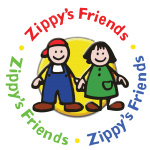About Us
Origins
Developed at Université du Québec à Montréal (UQAM) by a multidisciplinary team under the direction of Professor Brian Mishara, the Passport: Skills for Life programme was designed following consultation and collaboration with various stakeholders in schools, parents, community organizations and health professionals. From 2011 to 2014, over 2,131children and 131 teachers participated in the scientific evaluation of the programme’s implementation and outcomes. For more information on the scientific research on the programme, visit the Evaluation section.
Passport: Skills for Life has the same objectives and is based on the same theoretical founding principles as Zippy’s Friends [1], an internationally renowned programme for children ages 6 and 7 with proven positive results [2]. Several evaluations have confirmed that it increases children’s use of coping strategies and these gains were maintained over time. Moreover, it reduces certain problematic behaviour (impulsivity, aggression, etc.), and increases collaboration and autonomy. International experience has confirmed that this programme can be successfully implemented in different cultural contexts. Indeed, Zippy’s Friends is being used in over 30 countries with the participation of more than 1.3 million children to date.
 After having conducted Zippy’s Friends in the classroom, many teachers have shown interest in follow-up so that older children can retain their learning and build on it. Researchers and other partners involved in Zippy’s Friends came together to develop a programme for children in elementary school 9 to 11. The development, implementation and evaluation of the Passport: Skills for Life programme was funded by the Public Health Agency of Canada from 2009 to 2015.
After having conducted Zippy’s Friends in the classroom, many teachers have shown interest in follow-up so that older children can retain their learning and build on it. Researchers and other partners involved in Zippy’s Friends came together to develop a programme for children in elementary school 9 to 11. The development, implementation and evaluation of the Passport: Skills for Life programme was funded by the Public Health Agency of Canada from 2009 to 2015.

